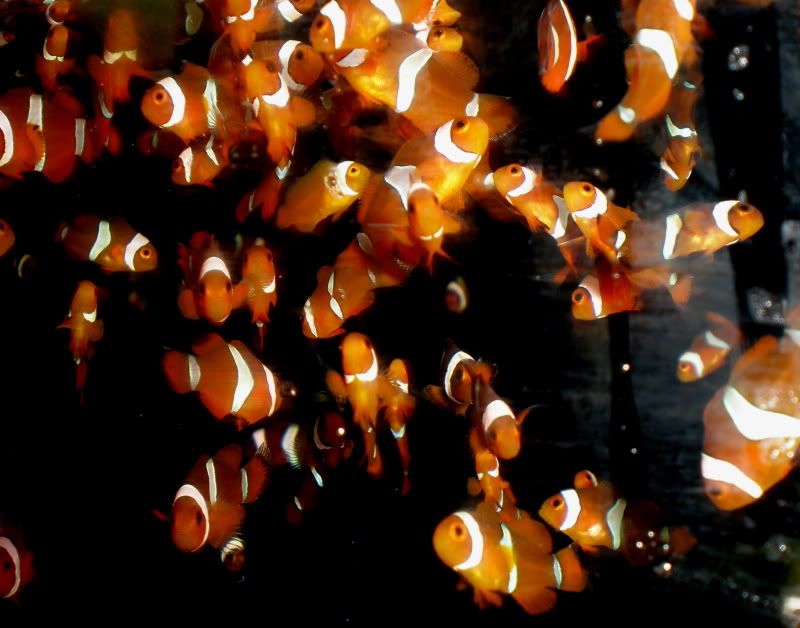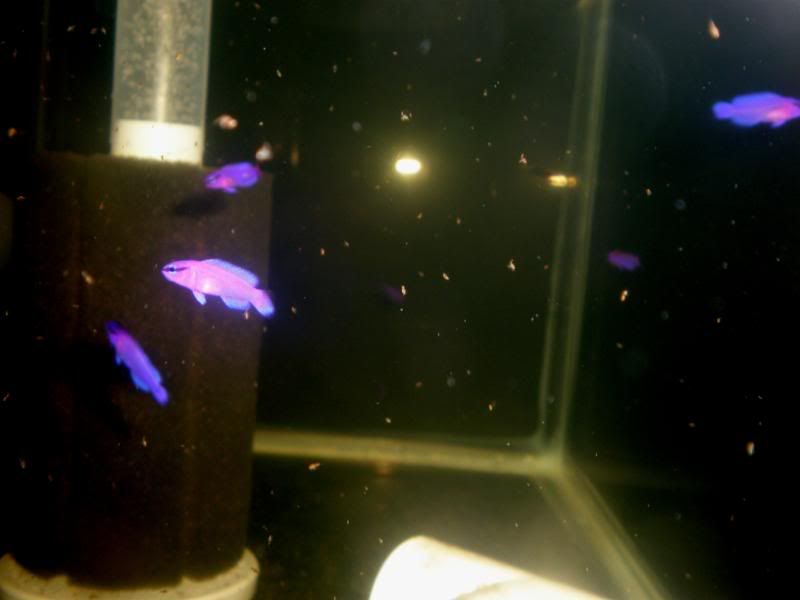Captive Bred Fish: Why to Buy and/or Breed Them
by
, 02-10-2010 at 09:02 PM (3277 Views)
With the increased visibility of captive bred fish I thought I'd post a few things to get everyone thinking.
Currently, under 10% of marine aquarium fishes that are available are raised in captivity, unlike about 90% of freshwater species. Captive breeding offers a way to limit the stress placed on coral reefs world wide. Learning to breed marine ornamental organisms in captivity will go a long way towards reducing the impact of the hobby. (I'll be using the term fish to stand for fish and inverts)
There are several ways that hobbyists can help make an impact with captive bred species.
The first is to request and buy captive raised species whenever possible. Talking to your local fish store about captive bred fish lets them know that there is a market for them. Many stores still don't believe that consumers will pay a few dollars more for captive bred fish. There are reasons for paying a bit more but I'll get into that a bit later.
Why buy captive bred fish?
You might be wondering why one should consider choosing a captive bred fish instead of one that is wild caught.
There are several reasons, the main on being to limit the impact of wild collection from the world's reefs. Not only can over-collection be devastating to a particular are, it can also have an impact on the oceans in general. Collecting a particular species to the point of extinction is the worst case scenario.
Below are a few reasons that captive bred fish are a better option:
- Less aggressive (Growing up in a predator-free environment makes for a more docile fish)
- More likely to accept prepared foods.
- No risk of wild parasites or infections. (A healthier fish)
- Since captive bred fish can usually be obtained locally, there is almost no risk of loss during transport.
- Fewer fish need to be collected from the wild.
Another thing that you can do is to talk about it with other hobbyists. Some people are unaware of the benefits of captive bred fish. Do a bit of reading on different species, especially the Banggai cardinalfish, and talk about it with your friends.
Many stores would rather spend less money per fish and accept some percentage of "die-off" during or soon after shipment. This is rarely a problem with captive bred fish that only have to be transported a few hundred miles as opposed to several thousands of miles over several days. Personally, I find the "acceptable losses" unacceptable, especially when they can be avoided.
Another important aspect of buying locally bred fish is that the money generated often stays within the community rather than going out of the country.
Why do captive bred fish cost more?
People often ask why captive bred fish cost more than wild caught ones. The short answer is that the breeder is paying the cost of raising the fish from an egg to market size rather than just plucking it out of the ocean. Food, supplies, time all cost the breeder.
With that being said, many people never realize that the people out in the wild catching fish are very poorly paid, in many cases pennies per fish. The cost goes up each time that fish changes hands until it reaches you. Each stop that fish makes on it's way to you increases it's mortality rate. I think you see where I'm going here.
Now that you know the importance of captive bred fish you might want to consider breeding your own. This can be a great project on many levels.
Why breed fish?
There are many reasons to get involved in captive breeding:
- It's fun and educational. (You'll learn a lot)
- You can do your part to lessen the impact of the hobby on the world's reefs.
- It's very rewarding to see the entire life cycle from the beginning.
- It's something that you're passionate about. (It is work, so don't get involved unless you have the time and dedication required.)
Personally I've done a lot of research and am finding it very fun and rewarding to raise several species of fish and supply them to several local stores. Helping others learn about captive breeding has been very rewarding as well.
In the words of my mentor:
"A sense of passion is what first drives most hobbyists to raise these fishes... I believe that curiosity is a tremendous motivator, as is doing something that most people think is impossible." -Matthew L. Wittenrich














